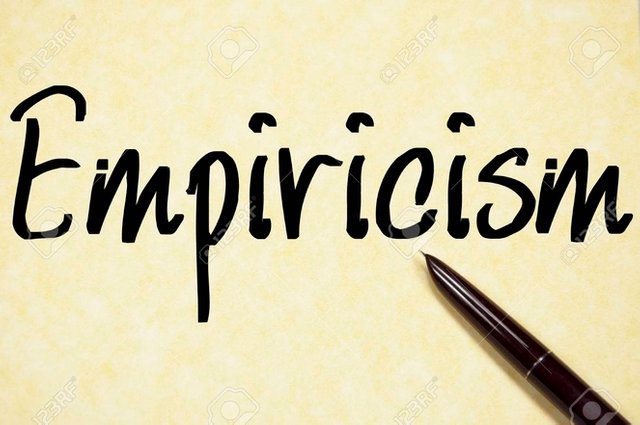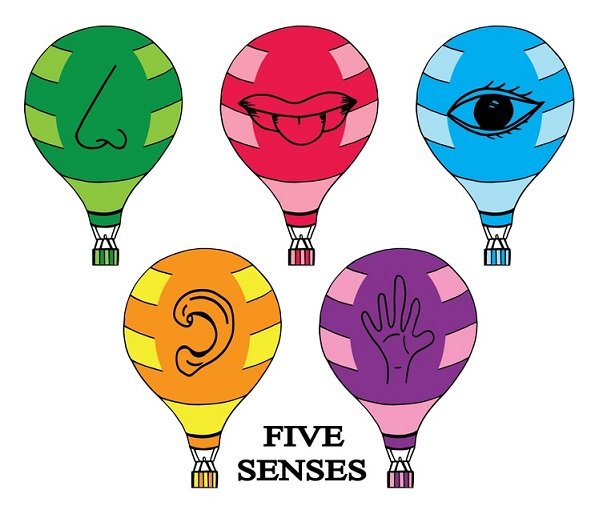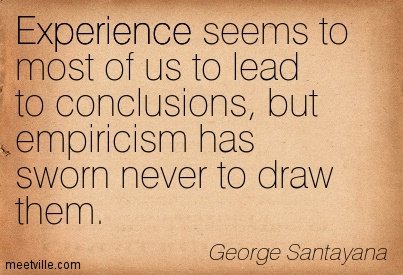Knowledge acquired by human senses already existed and is confined in experience

Image Source
As indicated by empiricism, the laws of reason are duplicates of and controlled by knowledge which is a posteriori. No apriori knowledge in the sense of what rationalism battles to be available in reason is ever conceivable. Judicious ideas are side-effects of the experiential material.
The wellspring of knowledge is sense-experience and not mind or reason. The strategy for getting knowledge is inductive. Thoughts are reducible to sensations. Knowledge can't be picked up by simply finding that the inverse, which is incomprehensible, as rationalism holds, and truth can't be set up by the way that to deny it suggests, some way or another, its reaffirmation.
From the earlier knowledge free of sense-experience is incomprehensible. There are, in this manner, no widespread and vital plainly obvious certainties that are adumbrated by rationalism. So goes the intense empiricism.

Image Source
The imperfection of empiricism lies in the way that the senses are dishonest as methods for right knowledge. Sense-percepts have being or reality just in connection to the constitutions of the individual senses, and never freely. Short the attributes of the senses, our experimental percepts are nothing, which is equivalent to stating that we know, in a goal way, just what is now contained in the very idea of the senses subjectively.
This is unquestionably not a dependable or legitimate knowledge of reality. The foundation of the sense-percepts ever stay obscure to us, and the demeanor which we create towards the things in themselves that lie past the span of the senses is normally one of uncertainty.
It just implies that we need to wind up sheer cynics with respect to the idea of reality. Locke's empiricism normally made ready for Hume's doubt. The cynic's state of mind has an exceptionally hurtful response on the advance of philosophy, for, in the event that we are to convey distrust to its consistent breaking points, there can never be any such thing as all inclusive and fundamental realities, and all that we know would be minor fragmentary and detached shreds of occasions, which would pass on no importance by any stretch of the imagination, because of absence of causal connection and essential association among themselves.

Image Source
Uncertainty and mistrust of each settled supposition isn't just non practicable yet is inconvenient to the very position of the cynic himself, for, a deliberate skeptic who truly seeks after his strategy without deluding himself needs to question his own particular judgments, all together that he may stay away from the charge of authoritativeness in his look for truth.
A narrow minded adherence to one's own feelings where different perspectives are conceivable isn't the normal for a genuine philosophic technique. To realize that we don't know suggests the acknowledgment of some model of assurance, some knowledge which we as of now have with no hint of uncertainty.
Truth, goodness and excellence lose their significance and esteem when unqualified uncertainty clears into our souls. Life turns into a void issue, with no clear point before it. Empiricism is the antecedent of incredulity, and as a technique for enquiry into the idea of truth, it is inadequate and uncertain.

Image Source
References:
https://en.wikipedia.org/wiki/Empiricism
https://plato.stanford.edu/entries/rationalism-empiricism
http://decodedpast.com/john-locke-on-thinking-about-thinking/2642
Mental reasoning is empirically the best knowledge.learning from experience I believe supercede other knowledges
Downvoting a post can decrease pending rewards and make it less visible. Common reasons:
Submit